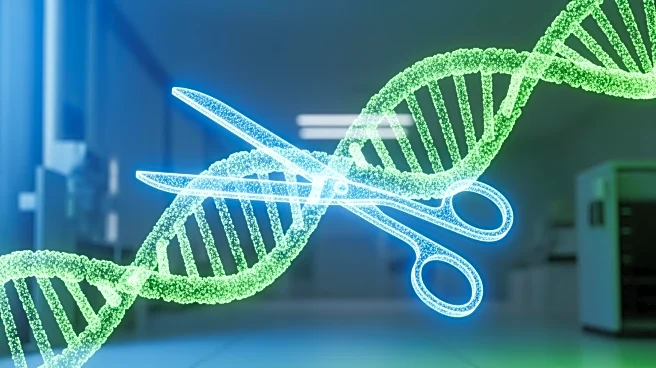What's Happening?
CRISPR Therapeutics has developed a gene editing therapy that significantly reduces levels of low-density lipoprotein (LDL) cholesterol and triglycerides in patients with heart disease. The treatment,
tested in 15 individuals, shows promise for preventing heart attacks through one-time gene editing. However, concerns remain about potential liver toxicities and the willingness of patients to undergo permanent gene editing for conditions that might be managed with traditional medications. The study's findings were published in the New England Journal of Medicine and presented at the American Heart Association's annual meeting.
Why It's Important?
The development of CRISPR-based therapies represents a significant advancement in medical technology, offering potential new treatments for heart disease. If successful, this approach could reduce the need for ongoing medication and provide a long-term solution for managing cholesterol levels. The research highlights the growing interest in gene editing as a tool for addressing common health issues. However, ethical and safety concerns must be addressed, particularly regarding the long-term effects of permanent genetic modifications.
Beyond the Headlines
The use of CRISPR technology in medicine raises important ethical questions about genetic modification and its implications for human health. The potential for gene editing to prevent heart disease could lead to broader discussions about access to such treatments and the regulation of genetic technologies. As research progresses, the medical community will need to consider the balance between innovation and safety, ensuring that new therapies are both effective and ethically sound.








